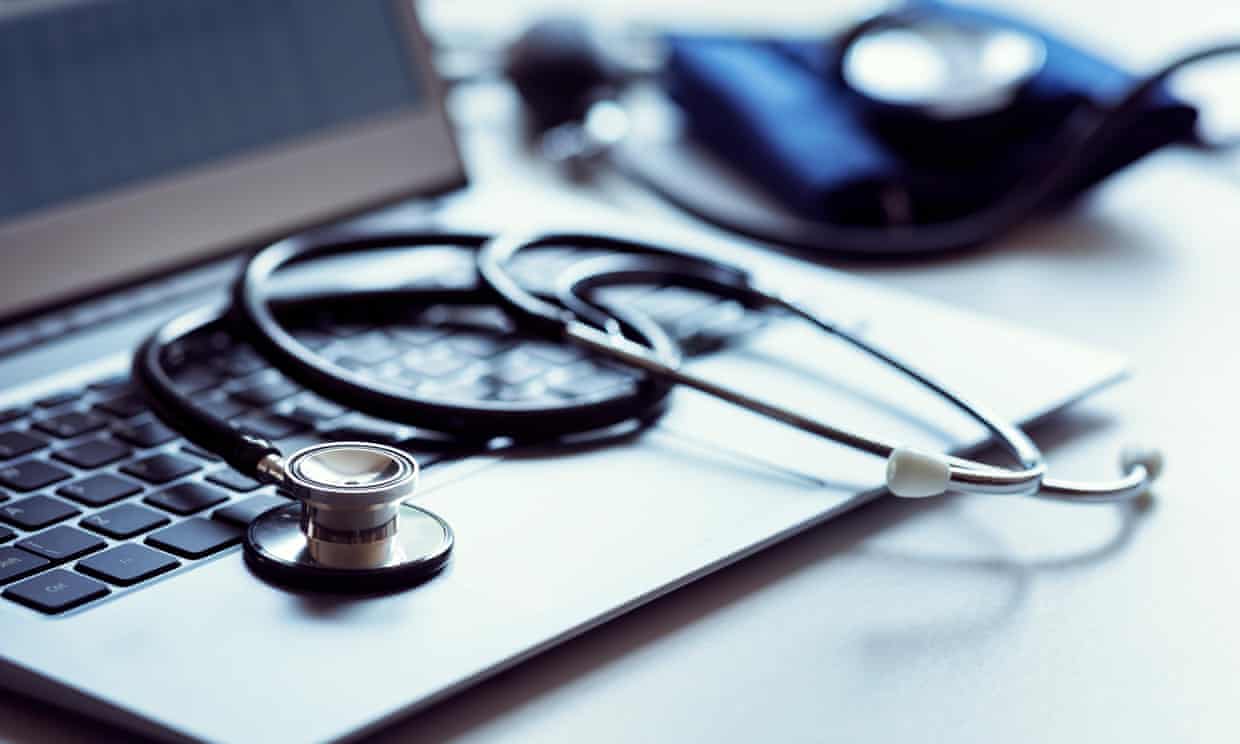
Opinion
This letter from NHS England is ill-timed and ungrateful. GPs are open for patients
The doors of our surgeries may be locked but many have better access than ever. Let’s ensure this includes vulnerable people
by Ann RobinsonCoronavirus – latest updates
See all our coronavirus coverage
GPs are up in arms about a letter sent out by NHS England reminding them of the obligation to see patients. It’s couched politely enough, acknowledging that “the vast majority of practices have made significant efforts to remain accessible to patients through the pandemic, and to keep staff and patients safe”. But this isn’t a thank you letter – the point is to admonish: “It is important that no practice suggests in their communication that the practice is closed or that the practice is not offering the option of face-to-face appointments.”
GPs highlight a previously unimaginable reconfiguration of services to keep the show on the road during the Covid-19 pandemic. Many have kept working at great personal risk, managing their normal workload while trying to keep up with the shifting sands of referral pathways and the responsibilities of keeping practices safe for staff and patients. The usual tempo and routine of general practice has been completely disrupted, and this bossy letter from NHSE is unnecessary, ill-timed and ungrateful. Patients arguably have better access than ever – with consultations online, on the phone, at extended out-of-hours clinics and, if considered necessary, in person.
But it is true that if you pitch up at your local GP surgery, you won’t be able to just walk in. There will probably be a sign on the door and the website saying that you need to phone or email first. The door will probably be locked. You may be able to speak to a receptionist via an intercom, and may be able to make your case and be seen on the spot. Or not. You may be able to get through on the phone. Or not. And you should be able to book an e-consultation online, and submit clinical details and pictures, which will be replied to online or with a call, or even an invitation to come along for a face-to-face consultation. These improved ways of getting GP attention are fantastic if you’re well, tech-literate and good at making your case. They’re rubbish if you’re too unwell to talk, not able to use or access the internet, have cognitive impairment (including dementia, learning difficulties or acute confusion caused by infection), or communication difficulties.
So what’s wrong with NHSE sending the letter? Everything. Because they’re targeting the wrong people. GP surgeries – and that includes every valiant team member who has shown up to work throughout this pandemic – are generally doing a great job. It makes total sense to limit the flow of people through the door, and to triage to direct patients to appropriate services. The bad old days of everyone heaped up in a room, coughing over one another while waiting to see the doctor, will hopefully never return. Routine childhood immunisations, smear tests and other preventative services offered to healthy people are all resuming, and people need reassurance that the surgery or clinic will be as Covid-free as possible.
But the other day I saw an unkempt, elderly man knocking on a closed surgery door (not one that I work at). He squinted at the sign on the door explaining that he needed to phone. He didn’t ring or hammer on the door. I watched him shuffle away. I didn’t do anything, but at the very least, I could have shown him where the intercom buzzer was. We all need to look out for the left-behind and those disenfranchised by this new way of accessing care. If you have an elderly and vulnerable parent or neighbour, it’s worth emailing their GP to check that they’ve been added to the list of vulnerable people (not always the same as those on the shielded list). Most GP surgeries will respond within the constraints of confidentiality and GDPR. There are patient participation groups and advocacy organisations such as Healthwatch if you don’t get a response.
Some conversations and problems are best dealt with face to face. I am generally quite comfortable with phone consultations, but misjudged one badly recently. The patient didn’t like my tone or suggestions. I thought it had been a tricky phone call, but didn’t realise how unsatisfactory the caller had found it. I wish that we had met face to face; perhaps it would have been easier to read the situation. And in many cases new, worrying or persisting symptoms or lumps are best explored in person. Add to this the simple fact that people now are often reluctant to attend the surgery because of fear of catching Covid or “wasting GP time”. Both are understandable but largely misplaced.
The front door may be locked, but GPs are open for business, and have been throughout. The key to entry is via phone and online – some of us will just need more help and encouragement to gain access. No one should be deterred, disbarred or discouraged from getting help. NHSE has sounded a sour note at a time when a little sweetness would help us all.
• Ann Robinson is a GP